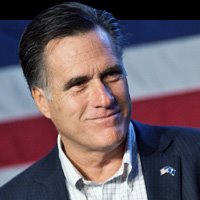 President Barack Obama and presidential candidate Mitt Romney have taken polar-opposite stances on almost every issue affecting the nation, and the wind energy production tax credit (PTC) is no exception.
President Barack Obama and presidential candidate Mitt Romney have taken polar-opposite stances on almost every issue affecting the nation, and the wind energy production tax credit (PTC) is no exception.
Although Obama has repeatedly voiced his support for a wind PTC extension – even making it part of Congress' near-term ‘to-do list’ – Romney had not officially acknowledged his position on the issue. Until now.
The Romney campaign on Monday told the Des Moines Register that the presidential candidate wants the wind energy PTC to expire at the end of the year.
"[Romney] will allow the wind credit to expire, end the stimulus boondoggles and create a level playing field on which all sources of energy can compete on their merits," a spokesperson for the Romney campaign told the Des Moines Register.
The announcement sparked harsh criticism from several members of Congress. Although Sen. Mark Udall, D-Colo. – one of the most vocal supporters of a PTC extension – did not mention the former Massachusetts governor by name, he alluded to the Romney camp's announcement in a statement on his website, saying a lapse of the PTC for wind would be "irresponsible."
"Any suggestion that the United States should let the wind production tax credit lapse at the end of the year would be irresponsible and relinquish the country's status as a global leader in energy innovation," Udall said.
"Not renewing the PTC would effectively outsource these jobs to China and our competitors abroad," he continued. "We need to reauthorize the PTC ASAP. I reject the idea that we should give up on this critical component of our energy independence and American manufacturing, which supports thousands of middle-class families."
But it wasn't just Democrats speaking out against Romney's stance on the PTC. Several Republicans are in favor of renewing the tax credit, and they criticized the Romney camp's statements.
Rep. Tom Latham, R-Iowa, condemned Romney's position, recognizing how vital wind energy is to Iowa's economy.
"I'm disappointed that the statement by Gov. Romney's spokesperson shows a lack of full understanding of how important the wind energy tax credit is for Iowa and our nation," he said in a statement. "It's the wrong decision. Wind energy represents one of the most innovative and exciting sectors of Iowa's economy.
"A continuation of the wind energy tax credit is in the best interest of our nation's all-of-the-above energy policy for American energy independence and for our economy," he added. "I invite Gov. Romney to step forward and re-evaluate the statement issued by his campaign spokesman."
Latham is just one of many Republicans who support an extension of the PTC. His colleague, Sen. Chuck Grassley – also a Republican from Iowa – was the author of the first-ever wind energy PTC legislation and co-sponsored a bill earlier this year to extend the tax credit.
Indeed, the PTC for wind energy has garnered widespread bipartisan support, which the American Wind Energy Association (AWEA) has repeatedly stressed. Responding to the Romney camp's announcement, AWEA went so far as to say that Romney's anti-wind stance could turn Iowa voters against him.
"A poll, conducted by Public Opinion Strategies for the American Wind Energy Association, shows that that "an overwhelming majority of Iowa voters would be less likely to support an anti-wind candidate for office,'" AWEA said in a statement.
Despite AWEA's tireless push for a PTC extension, Romney's latest announcement raises some uncomfortable questions. In February, AWEA CEO Denise Bode made a personal contribution to Romney's campaign.
The donation came before Romney announced his official position on the issue; however, his stance should not come as a surprise. The presidential candidate's official position on energy includes the following statements:
"We should not be in the business of steering investment toward particular politically favored approaches," Romney notes on his campaign website. "That is a recipe for both time and money wasted on projects that do not bring us dividends. The failure of wind mills and solar plants to become economically viable or make a significant contribution to our energy supply is a prime example."



